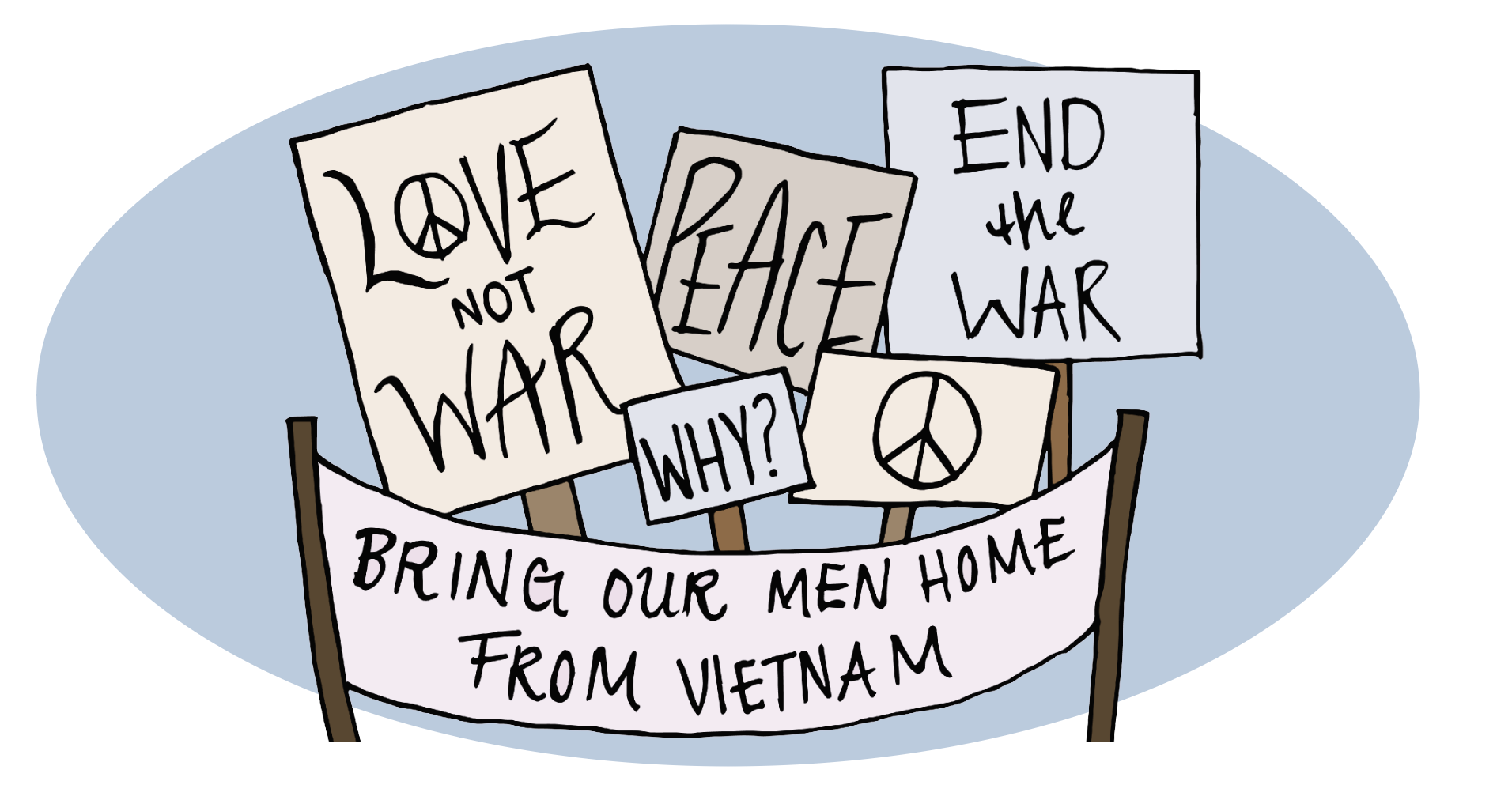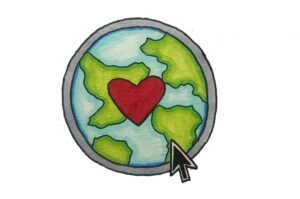I wasn’t present for the Voice’s birth in 1969, but I was there for a couple of those early pre-K years. I arrived at Georgetown a few months after the inaugural issue. An eager beaver freshman, I had my initial Voice byline in April 1970, just after the paper’s first anniversary.
The piece was an account of the first Earth Day march and rally in D.C. The headlined read, “Hey, Get Your Earth Day Button,” because the first part of the article consisted of a very funny and loquacious vendor’s sales pitch for commemorative pins and tee shirts. I tape recorded his monologue and transcribed it word-for-word, then went on to chronicle my own observations of the day, which may or may not have been worth reading.
One moment I remember was while we were listening to speeches outside the Interior Department, a dead sparrow fell from a tree; indicative of the polluted air quality in Washington, I thought, or that birds get easily bored, too.
That article was a lesson in learning how to listen to the way people talk and getting it down on paper. It taught me that an accurate understanding of speech and its myriad twists and turns lends authenticity and credibility when writing just about anything—dialogue, monologues, or narration. It’s what I’ve spent most of my career trying to do.
My Earth Day piece was the first of a series of features and reviews I wrote for the Voice, but more important, it introduced me to a gang of witty, smart, articulate reprobates and rebels who had done something unheard of—swimming against the tide of the university establishment and creating an infant publication out of nothing but talent, a commitment to truth, and a heartfelt embrace of good times.
The Voice began during the age of New Journalism, when people like Tom Wolfe (who spoke at the Voice’s tenth anniversary), Hunter Thompson, Jimmy Breslin, Mike Royko, Gay Talese, Pete Hamill and others were using the techniques of the novel to give texture and nuance to factual reporting. We emulated that style at the paper, or tried to.
What’s more, we wrote, edited, and photographed for the Voice against the backdrop of the Vietnam War and the student protests against it, all while the danger of a military draft whispered at our necks. It was a time not long after the assassination of Martin Luther King, Jr., and rioters had burned vast parts of Washington. And years before Watergate, we had already suffered the indignities of Nixon, Agnew, and their various corrupt pals.
I remember sitting in the Voice offices on the second floor of the white wood-framed O’Gara Building the Sunday afternoon before the violent Mayday anti-war demonstrations of 1970. I was studying for a philosophy exam as helicopters roared over the athletic fields. I remember the next morning when several of us were at Key Bridge covering the protests and went hurdling back toward campus when the police attacked. We dashed to 36th Street and ran smack into a massive wall of tear gas.
I also remember covering the grand opening of the Kennedy Center and being sloppily kissed by Leonard Bernstein at the afterparty. I remember interviewing politicians and filmmakers. And I especially remember the evenings of camaraderie spent in the aforementioned Voice offices, at the compositors in the Car Barn, at the place in Silver Spring where we put the paper to bed, and that all-night coffee shop to which we retired, hungry, worn out, and slaphappy.
There’s more to tell, a lot more. But for now, here’s to Marty Yant (SFS ’71), and Tony Kawas (COL ’71) and Steve Pisinski (COL ’71) and Rick Newcombe (COL ’73) and Alan Di Sciullo (COL ’72, LAW ‘77) and Cynthia Paulis (MSB ’74) and Mike Flannery (COL ’73) and Steve Robling (COL ’72) and all the others who gave Georgetown an alternative Voice. I’m proud to have known you guys.
Michael Winship (COL ’73) was Features Editor in Spring and Fall 1971, and Spring 1972





